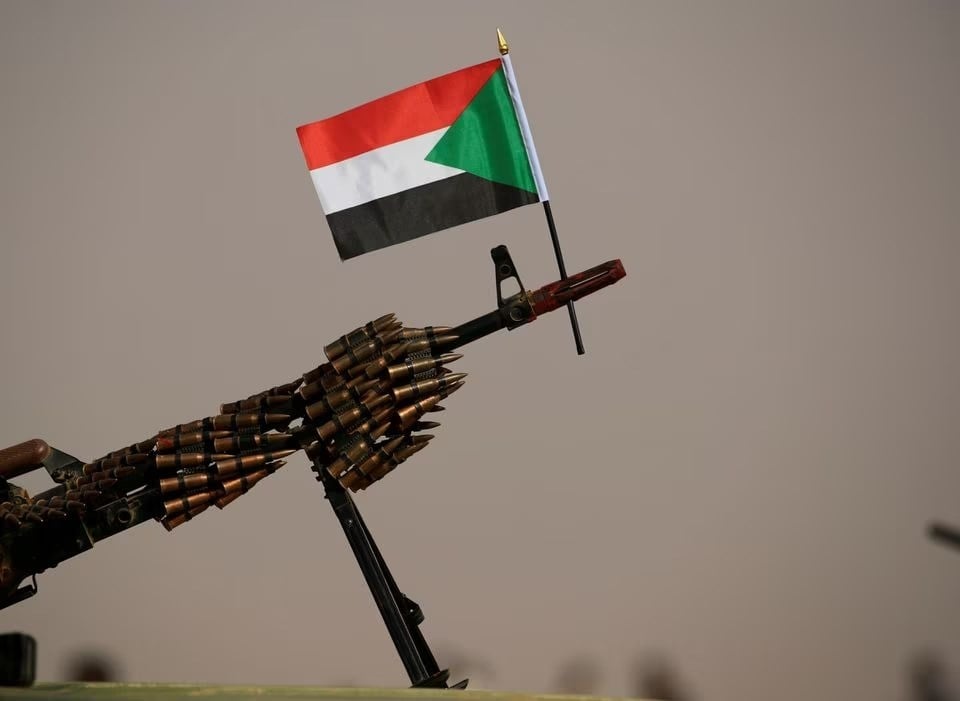Darfur governor calls on civilians to take up arms and fight RSF
Mini Minawi the Governor of Darfur says citizens of Darfur should arm themselves and protect their property from troops of the Rapid Support Forces.
-

The flag of Sudan is attached on the muzzle of a machine gun belonging to the Rapid Support Forces (RSF) Aprag, Khartoum, Sudan, June 22 2019 (Reuters)
Citizens in Darfur were called upon to take up arms and fight in the war that has taken the country by storm, the Governor of Darfur, Mini Minawi, said on Sunday.
"There are many who do not wish for the safety or rights of citizens and deliberately sabotage national institutions," the official tweeted.
"I call on all our honorable citizens, the people of Darfur, old and young, men and women, to take up arms to protect their property."
Most fighting has concentrated in the capital Khartoum and in Darfur as the latter is located in close proximity to the border with neighboring Chad.
Minawi spoke in support of the Sudanese Armed Forces, which are commanded by Abdel Fattah Al-Burhan, that have been engaging in open armed conflict with the Mohammed Hamdan Dagalo-led Rapid Support Forces since April 15.
Darfur at the center of conflict
Hundreds have been killed in the fighting that ensued which led to widespread looting of health and aid facilities in the area. Residents of the governate took refuge in Chad while those who remain have been identified as possible candidates for militarization.
Raga Makawi, a Sudanese activist pointed to "a real risk of people who were in the past part of nonviolent movements now considering the right to bear arms in order to protect themselves."
In 2017 the Small Arms Survey, a Geneva-based research project, said that there are around 6.6 guns per 100 people in Sudan. Since then the ratio must have increased as fighting in the country led to a huge influx of weapons, as the United Nations previously stated that civilians were being armed.
Al-Burhan directed army pensioners and reservists to join the SAF's ranks to bolster its fighting capabilities against the RSF which have entrenched themselves in Sudan's urban areas.
Warring Generals
Al-Burhan and Hemedti came into power 18 months ago in a coup after sidelining other civil and societal actors, claiming that they have a duty to protect the nation's interests.
Both generals' careers took off in the early 2000s, as President al-Bashir employed the services of al-Burhan to aid in bringing a stop to turmoil in Western Sudan, while Hemedti was part of the Janjaweed; a conglomeration of Arab tribal militant groups active in Darfur and parts of Chad. Hemediti also aided in the fight in the west of the country and was eventually appointed by Al-Bashir as head of the newly formed RSF.
Hemedti made a fortune from gold mining concessions and hefty commissions he received from sending mercenaries to fight for the UAE in the Saudi-led aggression on Yemen.
Read more: NYT: How Sudan devolved into war.

 3 Min Read
3 Min Read








